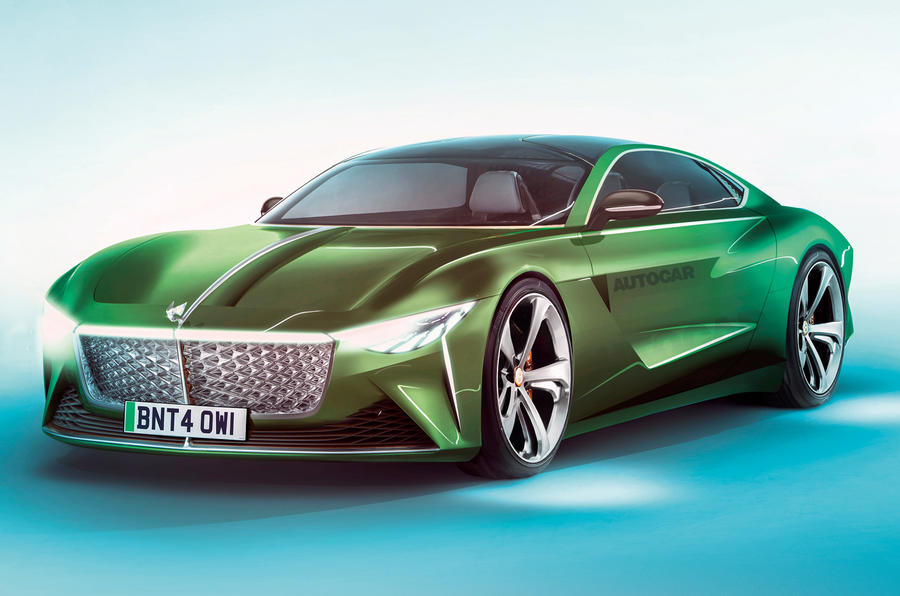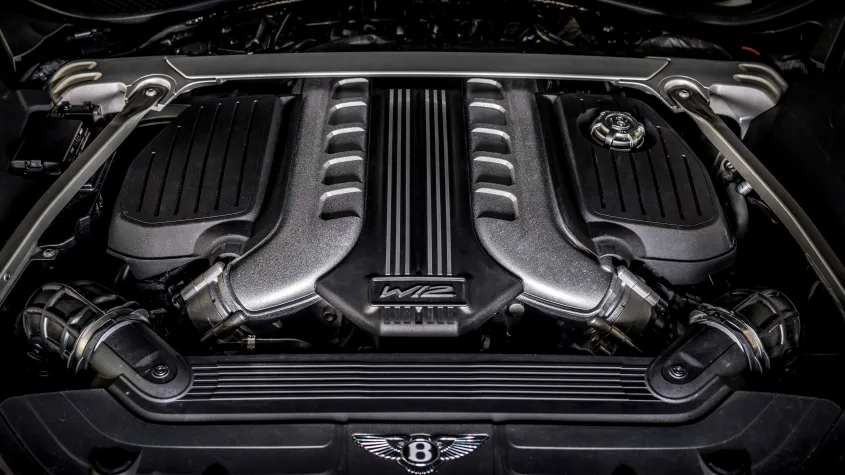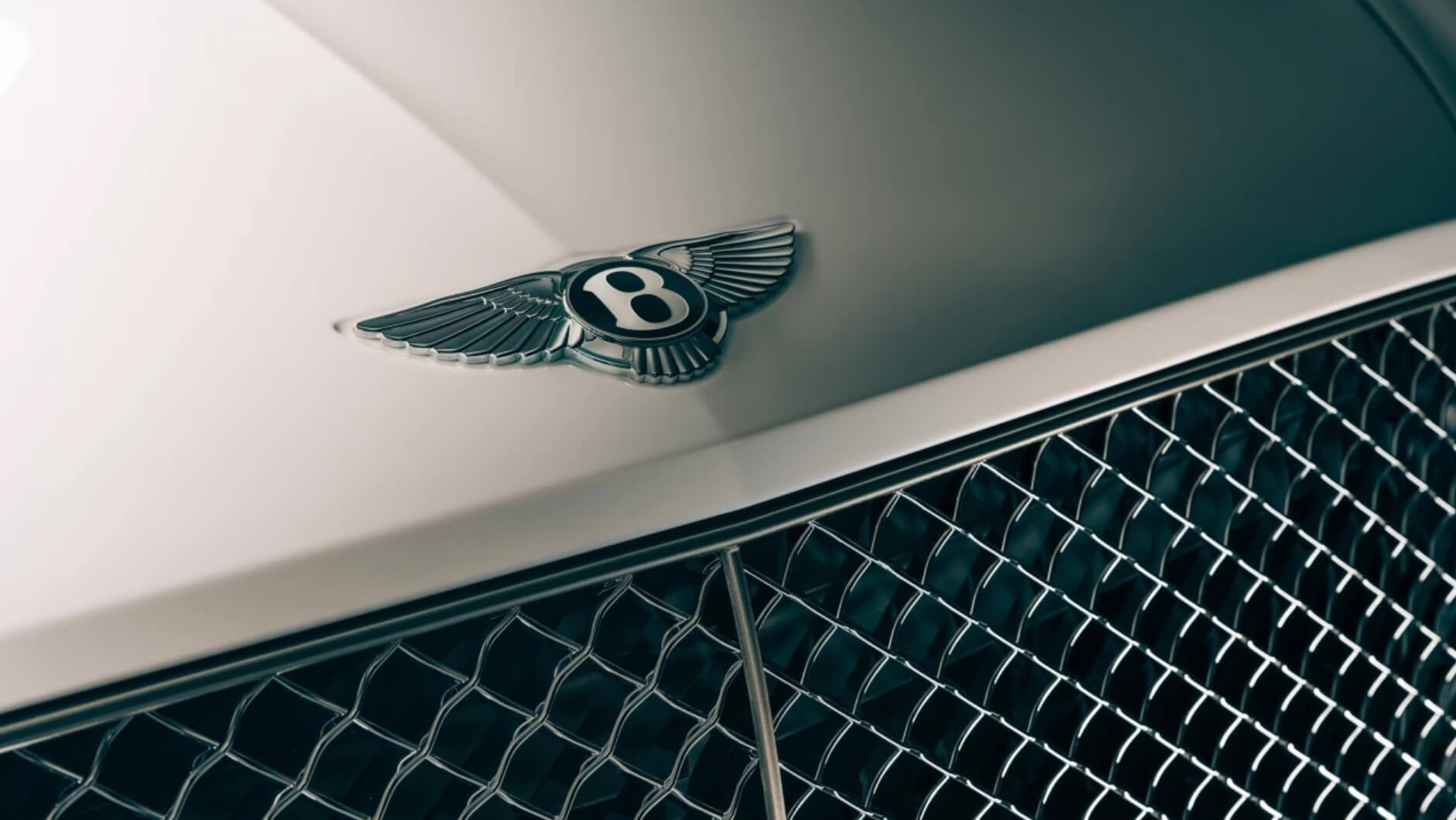Bentley CEO Adrian Hallmark is overseeing the biggest change in the British luxury brand’s history.
Bentley Motors CEO Adrian Hallmark is full of respect for the intelligence of the well-heeled folk who buy his unique breed of Crewe-built luxury cars and is already taking steps to reward them for it.
Hallmark is on course to deliver the first all-electric Bentley to its new owner in three years’ time, and by 2030 he wants every one of the company’s five production models – one more than at present – to be battery-powered.
As architect of the biggest change in his company’s 104-year history, both to the cars and the historic factory, he requires the key support of the Bentley faithful, but is already confident that this expanding band has accepted the need for Bentley’s transition into the electric world, with others following fast.
Crewe has already launched V6 hybrid versions of its Bentley Bentayga SUV and Bentley Flying Spur limousine – both of which are selling strongly – and has similar plans for its Continental range next year. “Our surveys tell us that around 70% of customers expect us to build them an all-electric Bentley within five years,” says Hallmark, who believes buying a Bentley has distinct rational and emotional sides.
On the rational side, the trend towards EV acceptance is strong because owners tend to live in cities and use their cars every day. They’re realising that even if it’s possible to buy combustion cars in the future, these models will soon carry restrictions and extra costs. They won’t want the hassle.
Feeding the emotional side is very squarely down to the Crewe’s designers and engineers, who are currently hard at work on the challenge. “The latest-generation Bentley Continental GT is an excellent example of how things will go,” says Hallmark. “The Conti’s design, proportions, interior and dynamics all set new standards – and the next-generation cars will do it again.
“They will happen to be electric, but all the traditional qualities will go up another notch. What’s more, our new powertrains will have between 50% and 100% more power than we currently offer, so the performance will be there.”
On battery range, Hallmark claims his future Bentley EVs will have “two degrees of freedom” not available to mainstream models. They will have early access to sophisticated new battery technologies and their intrinsically higher prices will allow them to use the tech sooner than mainstream cars.
Early on there will be two battery specifications, with the Speed models using the higher-performance variety. Hallmark labels this variety “the W12 of batteries”.
He says: “I can’t name our partner manufacturer or the type but our cars will have a 350- to 450-mile (560-720km) range, together with a rapid-charging time from 10% to 80% in less than 20 minutes.” Bentley EVs will offer parity on range with the models they are replacing, he says.
The five-strong post-2026-model Bentleys will consist of the cars we know now – Flying Spur, Bentayga, Continental GT and GTC – plus another model. Hallmark won’t give details (although in our conversation he notes several times that rapid, market-wide SUV demand is still expanding fast).
Neither will he say which of the new EVs will be the 2026 ice-breaker, although he confirms it won’t be merely an electrified version of an existing model.
As they appear, the new Bentleys will be “easily recognisable” while progressing the company’s design language along lines already seen in the Bacalar and Batur concepts (both now adopted for super-exclusive production runs of 12 cars and 18 cars respectively). Bentley has no plans to reduce the imposing size of its cars and is also prepared to concede “a little” on aerodynamic efficiency. “Our job is to build Bentleys,” says Hallmark, “not BEVs with Bentley badges attached.”
When the five models are established, Hallmark expects production volume to grow from today’s 15,000 to “something closer to 20,000”, although he insists the company will never chase volume for its own sake. He’s proud of the fact that in 2022 Bentley needed to produce only 4% more cars to boost turnover by 19% and earn a record operating profit of £620 million (AUD$1.15 billion).
These earnings represent a 20.9% return on sales, a stellar performance for a car company and another record, although Hallmark brings things down to earth by pointing out that at last the company is making as much on every car as the government.
The reason for such widely different increases in turnover, profit and production numbers is easily explained, says Hallmark, and shows the potential of a business direction Bentley intends to steer towards more in future.
The company has proved it can increase earnings dramatically by providing customers with more choice and more personalisation, rather than chasing volume or raising basic prices. Demand for customised luxury cars keeps rising and Bentley is doing a better job of meeting it.
Despite the success, Hallmark believes luxury car companies must beware what he calls the “fur coat effect” – negative actions from those who dislike or disapprove of them. Part of Bentley’s defence is a corporate philosophy, revealed at the firm’s centenary, called Beyond100, that aims to keep the company and its products relevant in fast-changing times by anticipating trends, demands and difficulties.
“Part of the reason for Beyond100 is existential,” the CEO explains. “If, for instance, we can claim zero carbon footprint – and our manufacturing processes already achieve that – we remove a potential threat. That’s also why we support the research into e-fuels and why we’re unwavering in our determination to have a fully carbon-neutral range of cars by 2030.”
On motorsport, traditionally a key part of Bentley DNA, Hallmark says it would have been “lovely” to return to Le Mans for this year’s centenary event, which is also the 100th anniversary of Bentley’s first entry and the 20th anniversary of the most recent Le Mans win.
The company looked briefly at competing in LMDh (a so-called Le Mans Daytona hybrid prototype formula for cars designed to compete alongside Le Mans hypercars) but decided it already had too much to do, first hybridising all of its models, then launching the five new EVs, including the promised all-new model.
“If we went racing, it would have to be global and full electric,” says Hallmark. “And it would need to be endurance racing, say four- or six-hour races, not Formula E.
There’s no maturity around plans for electric endurance racing. Maybe it needs battery swapping or fast charging – that would make for interesting pit stops – but there’s lots of work needed yet. We keep listening, and we stay in the committees, but we don’t have formal plans.”
Whatever happens, Hallmark is determined to maintain Bentley’s high-performance image. Even forthcoming V6 hybrids (whose battery range is likely to increase as the models mature) will have more performance than today’s pure-petrol Speed models. And they will have less nose weight, too.
Hallmark knows a great deal more about Bentley than most, having been its sales and marketing director between 1999 and 2005 before returning as CEO in 2018. Despite having run things through a series of problematic years, he is sanguine about the future.
“We’ve made Bentley a successful, self-financing company,” he says, “and now the job is to polish the diamond. We must enjoy the end of the non-BEV phase – I keep telling people we still have around 55,000 of those cars still to build – and then we must be ready for the big technology change.
“I’ve always seen our mission as being to create the world’s most successful luxury car company, here in Cheshire. We need to stop looking at Ferrari – who remain everyone’s role model in our kind of business – and wondering how they do what they do. We want them looking at us, and I’d say we’re getting closer to that. It’s our mission over the next few years.”






